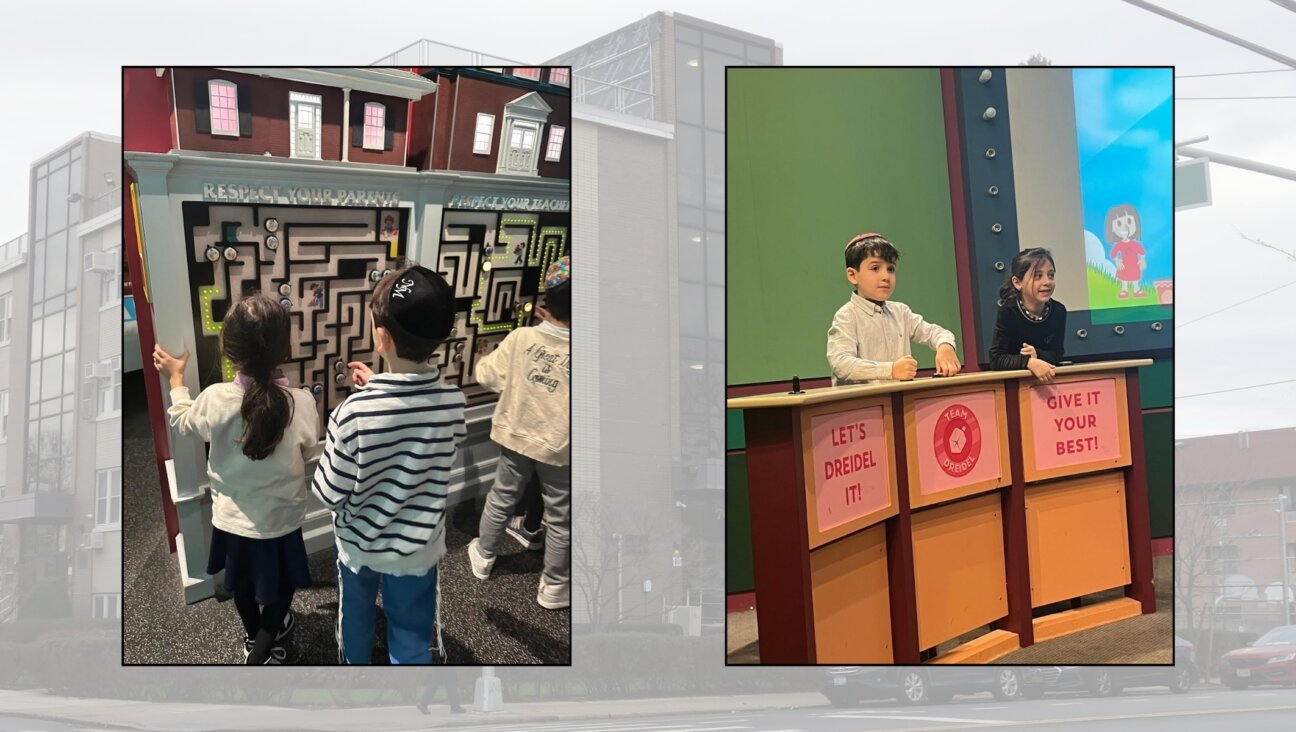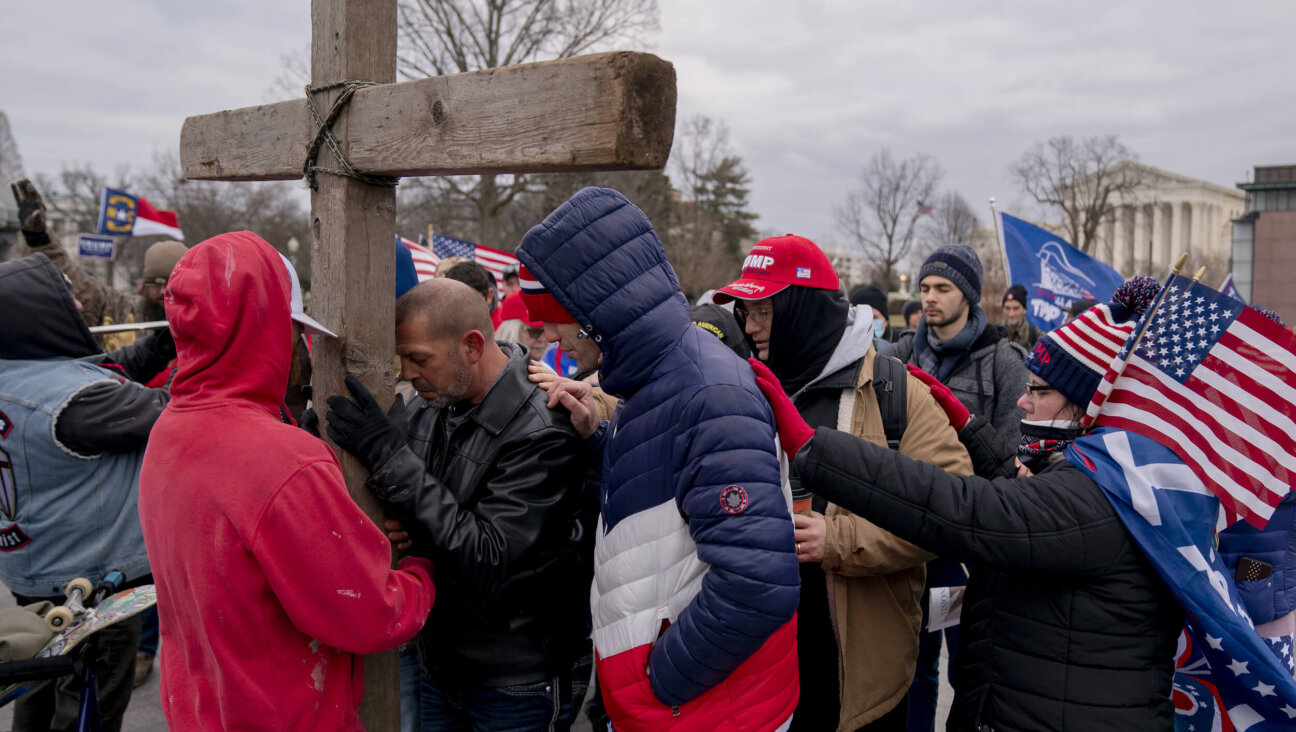Summer Camp Alumni Gather To Commemorate Founder
On a recent Thursday evening in Manhattan, a multigenerational gathering of more than 300 people shared a sentiment in short supply these days: hopefulness.
The alumni of Camp Massad had come together on the occasion of the 30th-day commemoration, or shloshim, of the death of camp founder Shlomo Shulsinger Shear Yashuv. The feeling was inspired by poetic Hebrew presentations fromformer White House adviser Jay Lefkowitz and Rabbi Haskel Lookstein of the Ramaz School, among others. It was further stoked by the trademark no-nonsense address of his widow, Rivka Shulsinger Shear Yashuv.
But it found its truest expression when Mati Lazar, head of the Zamir Chorale of Boston, sat down at the keyboard and led the audience in a spirited sing-along of Massad favorite songs, including “Techezakna,” the camp’s anthem, based on the well-known poem by Chaim Nachman Bialik.
The commemoration for Shlomo, as we knew him, was a celebration of his life and legacy. When he died in Jerusalem last month, at the venerable age of 92, a flurry of e-mails and phone calls went out along the formal and informal network of Massad alumni. After the success of the Massad reunion in 2002 — which drew more than 800 people from all over the country — various listservs sprang up, a Web site was created and plans for formalizing future contact were initiated. Over the past two years, there have been Massad lunches and basketball games, e-mail trees and phone conferences, and various get-togethers. Once reconnected under the common umbrella of Massad, it seemed, we alumni were unwilling to let each other go.
By now, the story of Camp Massad — which started as a Catskills day camp in 1941 and grew to three “sleep-away” locations in the Pocono Mountains of Pennsylvania before officially closing in 1981 — is well documented and has earned a permanent place on the landscape of American Jewish history. The creation of Shlomo and Rivka Shulsinger, pioneering Israeli educators and passionate Zionists, Massad is single-handedly responsible for the contemporary phenomenon of Jewish summer camps in the United States. A Massad alum started Camp Ramah. Camps Morasha and Moshava fashioned themselves after the Shulsinger model. In ways large and small, spanning the spectrum of religious denomination, almost every American Jewish summer camp owes a debt of gratitude to Massad.
Known first and foremost for its emphasis on Hebrew language and culture, Massad was a potent promoter of Zionism, Jewish observance and Yiddishkeit. Every alumnus of Camp Massad will tell you that the most indelible Jewish experiences of his or her life took place at camp: the Tisha B’Av services down at the agam (lake), the Friday evening services under the canopy of heaven; everyone well-scrubbed and dressed up; the mournful melodies of the last meal of the Sabbath, a time when the entire camp gathered in the lunch hall and sang its collective heart out during the last hours of our day of rest.
By now, the roster of well-known Massad alumni is also part of the public domain: the White House adviser, the MIT linguist known for his Israel-baiting, the Israeli filmmaker, the best-selling author, heads of institutions, businesses, intellectuals, judges, scientists, doctors, lawyers, Jewish leaders, rabbis of every denomination.
And so, Shlomo’s commemoration was a celebration of his life, of his legacy, of our memories of that time when the horizon stretched ahead of us, limitless. For two hours, we relived the dream that he made a reality for us.
A message from our Publisher & CEO Rachel Fishman Feddersen

I hope you appreciated this article. Before you go, I’d like to ask you to please support the Forward’s award-winning, nonprofit journalism so that we can be prepared for whatever news 2025 brings.
At a time when other newsrooms are closing or cutting back, the Forward has removed its paywall and invested additional resources to report on the ground from Israel and around the U.S. on the impact of the war, rising antisemitism and polarized discourse.
Readers like you make it all possible. Support our work by becoming a Forward Member and connect with our journalism and your community.
— Rachel Fishman Feddersen, Publisher and CEO























